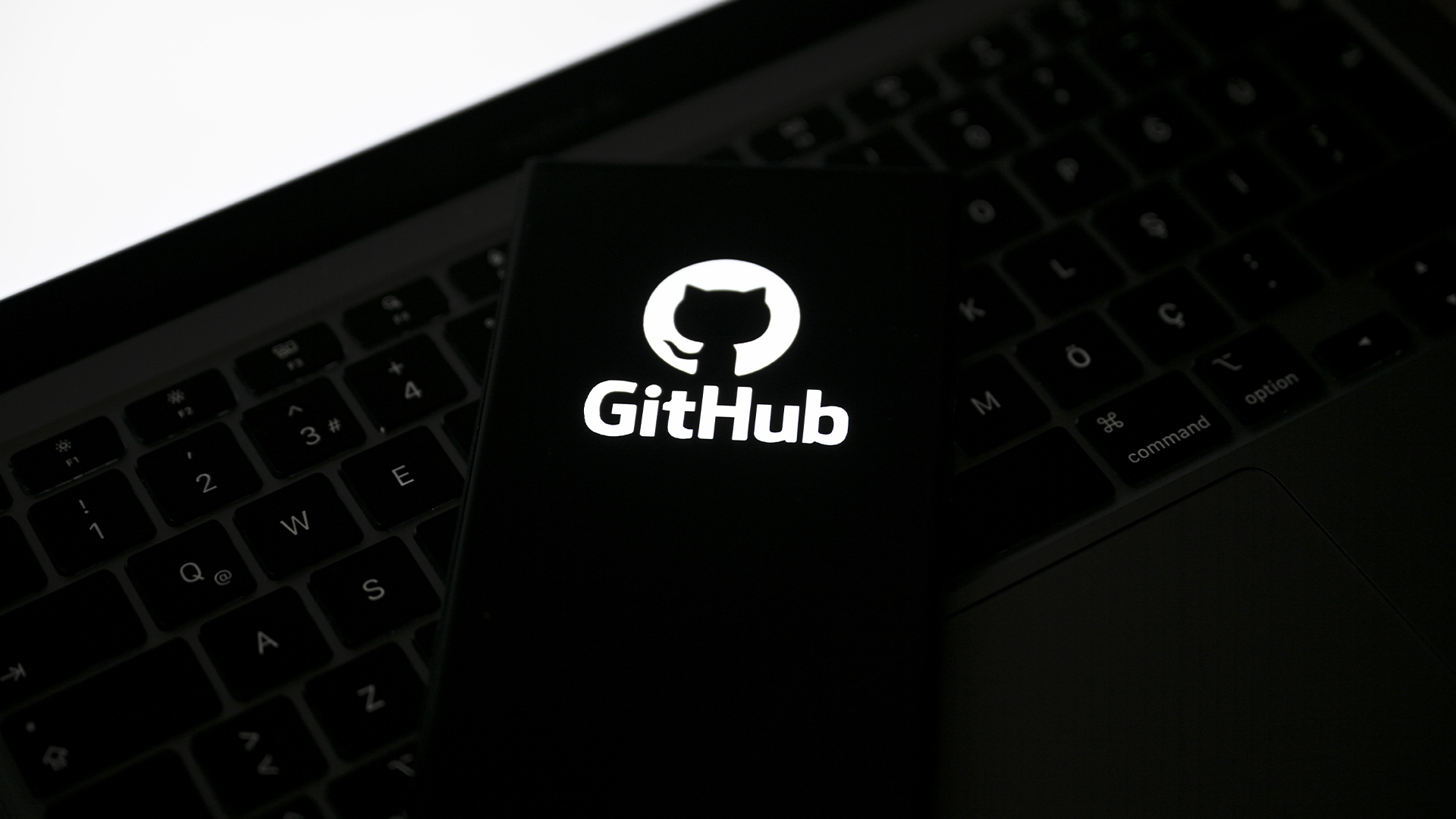GitHub's new 'Agent Mode' feature lets AI take the reins for developers
The new GitHub feature will be able to complete entire requests and automatically fix errors


GitHub has launched a new agentic AI tool for developers, dubbed ‘Agent Mode’, alongside a raft of updates to the Copilot service.
Agent Mode enables Copilot to iterate on its own outputs and complete entire user requests in one go, thereby automating broader aspects of the development process. It can also automatically fix errors, suggest terminal commands, and assess run-time errors.
Copilot will now iterate repeatedly on its output until all the necessary subtasks of a prompt are complete, GitHub CEO Thomas Dohmke said, and will infer additional tasks that were not specified but are necessary to fulfill the primary request.
The new agentic capabilities will improve Copilot Workspace, allowing collaborative users to leverage a system of sub-agents in the platform to improve efficiency when generating plans, implementing code, or fixing errors.
“Agent mode will change the way developers work in their editor; and as such, we will bring it to all IDEs that Copilot supports,” Dohmke said.
Another feature introduced to Copilot is the ‘Next Edit’ function, which can automatically identify and suggest edits of a user’s previous changes. Accessed by pressing tab, users will be able to browse suggestions throughout any open file.
Vision for Copilot was also unveiled, which will allow users to create a mock-up piece of code from a snippet of content, such as a shorter portion of code, a screenshot, or an image. With this, Copilot can generate the UI, alt text, and code.
Get the ITPro daily newsletter
Sign up today and you will receive a free copy of our Future Focus 2025 report - the leading guidance on AI, cybersecurity and other IT challenges as per 700+ senior executives
GitHub referred to its forward-looking plan, ‘Project Padawan,’ through which developers will be able to assign entire issues to Copilot, let it complete the task, and then evaluate and review the results.
The next step in AI code assistance
This announcement could mark yet another significant step in AI-based code assistance, which has been gaining huge popularity as a use case amongst developers and businesses. Google recently revealed that over 25% of its proprietary code is now AI-generated, for example.
GitHub has been at the center of the AI coding conversation for a while, having released GitHub Copilot Enterprise in early 2024, which it followed up with the release of GitHub Copilot Workspace a couple of months later.
GitHub touts the benefits of its tools, claiming that GitHub Autofix fixes software vulnerabilities at more than three times the speed of manual fixes, and at more than seven times the speed for cross-site scripting vulnerabilities.
There have been questions raised about the effectiveness of AI coding tools, though, with one study finding that developer performance has largely remained unchanged despite the use of coding tools.
RELATED WHITEPAPER
GitHub’s own research paints a more positive picture, however. Based on a survey of 2,000 software engineers and developers, the firm found that many reported several benefits related to AI coding tools.
Many said the tools improved code quality, helped deliver more secure software, improved test case generation, and allowed for the faster adoption of new languages.
These tools also enable better time utilization, with 47% of respondents in the US and Germany using the time they saved for collaboration and system design.
MORE FROM ITPRO
- Can AI code generation really replace human developers?
- The world's 'first AI software engineer' isn't living up to expectations
- AWS CEO Matt Garman thinks AI coding tools could herald the end of the developer as we know it

Ross Kelly is ITPro's News & Analysis Editor, responsible for leading the brand's news output and in-depth reporting on the latest stories from across the business technology landscape. Ross was previously a Staff Writer, during which time he developed a keen interest in cyber security, business leadership, and emerging technologies.
He graduated from Edinburgh Napier University in 2016 with a BA (Hons) in Journalism, and joined ITPro in 2022 after four years working in technology conference research.
For news pitches, you can contact Ross at ross.kelly@futurenet.com, or on Twitter and LinkedIn.
-
 ITPro NAB Best of Show 2025 Awards winners unveiled
ITPro NAB Best of Show 2025 Awards winners unveiledThe best of the best have received accolades for their innovation at this year's NAB show in Las Vegas...
By ITPro Published
-
 A new Neptune RAT variant is spreading like wildfire
A new Neptune RAT variant is spreading like wildfireNews Neptune RAT can hijack Windows PCs and steal passwords – and it's spreading fast
By Emma Woollacott Published
-
 AI was a harbinger of doom for low-code solutions, but peaceful coexistence is possible – developers still love the time savings and simplicity despite the allure of popular AI coding tools
AI was a harbinger of doom for low-code solutions, but peaceful coexistence is possible – developers still love the time savings and simplicity despite the allure of popular AI coding toolsNews The impact of AI coding tools on the low-code market hasn't been quite as disastrous as predicted
By Ross Kelly Published
-
 ‘Frontier models are still unable to solve the majority of tasks’: AI might not replace software engineers just yet – OpenAI researchers found leading models and coding tools still lag behind humans on basic tasks
‘Frontier models are still unable to solve the majority of tasks’: AI might not replace software engineers just yet – OpenAI researchers found leading models and coding tools still lag behind humans on basic tasksNews AI might not replace software engineers just yet as new research from OpenAI reveals ongoing weaknesses in the technology.
By George Fitzmaurice Published
-
 ‘We’re trading deep understanding for quick fixes’: Junior software developers lack coding skills because of an overreliance on AI tools – and it could spell trouble for the future of development
‘We’re trading deep understanding for quick fixes’: Junior software developers lack coding skills because of an overreliance on AI tools – and it could spell trouble for the future of developmentNews Junior software developers may lack coding skills because of an overreliance on AI tools, industry experts suggest.
By George Fitzmaurice Published
-
 Turns out AI isn't that popular at work – just 4% of workers use the technology in the majority of daily tasks, but developers are among the top early adopters
Turns out AI isn't that popular at work – just 4% of workers use the technology in the majority of daily tasks, but developers are among the top early adoptersNews Research from Anthropic shows that while AI adoption is sluggish in most professions, software developers and writers are very keen.
By Nicole Kobie Published
-
 The world's 'first AI software engineer' isn't living up to expectations: Cognition AI's 'Devin' assistant was touted as a game changer for developers, but so far it's fumbling tasks and struggling to compete with human workers
The world's 'first AI software engineer' isn't living up to expectations: Cognition AI's 'Devin' assistant was touted as a game changer for developers, but so far it's fumbling tasks and struggling to compete with human workersNews Devin, a coding assistant from Cognition AI hailed as the world's 'first AI software engineer', hasn't quite lived up to expectations, according to researchers.
By Nicole Kobie Published
-
 ‘Maybe we aren't going to hire anybody this year’: Marc Benioff says Salesforce might not hire any software engineers in 2025 as the firm reaps the benefits of AI agents
‘Maybe we aren't going to hire anybody this year’: Marc Benioff says Salesforce might not hire any software engineers in 2025 as the firm reaps the benefits of AI agentsNews Salesforce CEO Marc Benioff has suggested the company may freeze hiring for software engineers as the company records productivity boosts through AI agents.
By George Fitzmaurice Published
-
 A sign of things to come in software development? Mark Zuckerberg says AI will be doing the work of mid-level engineers this year – and he's not the only big tech exec predicting the end of the profession
A sign of things to come in software development? Mark Zuckerberg says AI will be doing the work of mid-level engineers this year – and he's not the only big tech exec predicting the end of the professionNews The Meta founder thinks 2025 will herald a profound shift in the software engineering profession
By Solomon Klappholz Published
-
 Shadow AI is creeping its way into software development – more than half of developers admit to using unauthorized AI tools at work, and it’s putting companies at risk
Shadow AI is creeping its way into software development – more than half of developers admit to using unauthorized AI tools at work, and it’s putting companies at riskNews Enterprises need to create smart AI usage policies that balance the benefits and risks
By Solomon Klappholz Published
